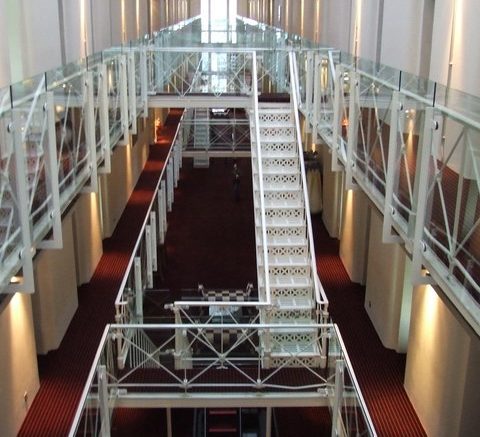While Johnson’s calls for 20,000 extra police officers could only just be heard over cries of “Get Brexit Done,” crime is a key component of the ‘national populism’ that Johnson embodies. One Ipsos Mori poll found that ‘law and order’ was the third most important issue for voters during the last election. Subsequent opinion polls consistently reached similar conclusions.
Professor Matthew Goodwin has pointed to the melding of a freer public purse and a more traditional social conservatism as the recipe for modern electoral success and Johnson’s landslide election victory on December 12th was a vindication of this as an electoral strategy.
But others have suggested that we should stop seeing justice through the prism of punishment; there are five purposes of sentencing listed in statute: To reduce crime, punishment, rehabilitation and reform, protection of the public and reparations to victims.
One such proponent, David Gauke, in his final speech as Justice Secretary on 16 July 2019 suggested we need a smarter justice system: “I believe the public therefore expect the justice system to focus on rehabilitation to reduce the risk of subsequent offending – and the likelihood of them becoming a victim of crime … we need to punish for a purpose.”
Johnson’s manifesto for the last election seemed to steer away from this vision. It included adding 20,000 new police officers and 10,000 new prison spaces, fast-track hearings for knife offences and the removal of restrictions on the usage of stop and search, among others.
It is estimated that reoffending costs the taxpayer £15bn per year and many have called for the emulation of the ‘Scandinavian model,’ which has a high focus on rehabilitation over punishment.
For example, Norway’s incarceration rate is 72 per 100,000, about half of the UK’s 145 per 100,000. Reoffending rates are also far lower in Norway, at 20 per cent – compared to 75 per cent here in the UK, 39 per cent of which occur within the first 12 months of release.
Our overpopulated prisons are a far cry from those belonging to our Norwegian counterparts. Often viewed disdainfully as cushy and over-comfortable, in one of their newest maximum-security prisons, Halden, each inmate has their own cell, equipped with its own fridge, television and desk.
UK prisons are generally ugly concrete monoliths in which inmates can expect a small television with limited stations as a reward for good behaviour, with cells usually shared with another inmate. In 2019, the Howard League for Penal Reform found that three in five men’s prisons are holding more people than they are certified to look after.
With an already overcrowded prison population, Johnson’s pledge to create an extra 10,000 prison spaces is inadequate as it fails to deal with the current overpopulation; 18,000 prisoners are already “crammed into cells holding too many people,” according to the Howard League for Penal Reform. This is without considering the potential impact that 20,000 extra police officers may have.
It seems Johnson’s policy concerning police officers and prison spaces is focusing on one aspect of the justice system without addressing another.
Nick Hardwick, professor of Criminal Justice at Royal Holloway University said: “Smart justice would recognise that the criminal justice system is just that – a system. Pump demand into the front end of the system through more police and longer sentences without increasing capacity further down the line and pressure will build – to bursting point.
“One part of the system cannot be fixed in isolation; it needs a system-wide approach.”
Boris Johnson, using his column in The Daily Telegraph previously suggested that allowing prisoners to be released on temporary licence was “criminally stupid,” when, in fact, the government’s own analysis shows that this practise reduces reoffending rates.
In May 2019, it was announced that the policy of release on temporary licence (RTL) was to be expanded, so more prisoners could be released for work, education or to see loved ones in a drive to reduce reoffending rates.
It is doubtful whether this practise will continue under Johnson’s government but more attention should be payed to the efficacy of policies like RTL and less to their aesthetics.
The Criminal Justice Alliance said that the issues in the justice system go beyond legislation and require “change from within.” Many public services, such as the NHS, they said, have “a tradition of involving and employing people with a lived experience.
“In this respect the criminal justice sector is behind the curve.”
They suggested that the benefits of lived experience include “employee motivation,” “empathy and compassion” and a “connection to the community.”
So, while legislating change in criminal justice is rightly a big area of concern for any government, it is also important to recognise that comprehensive reform of a broken system goes beyond policy.


Be the first to comment on "Tough justice or smart justice"